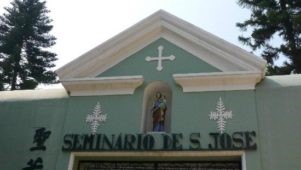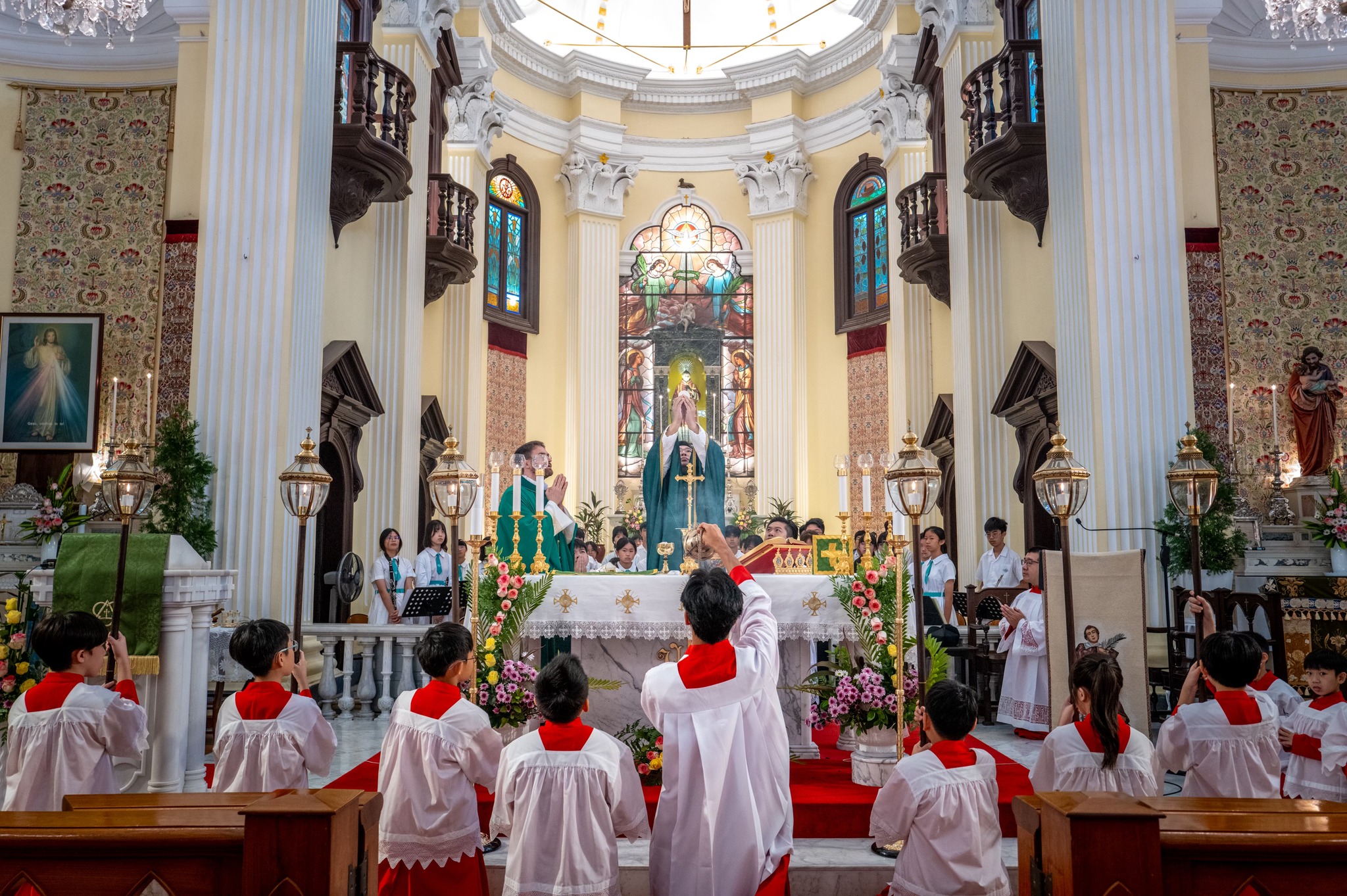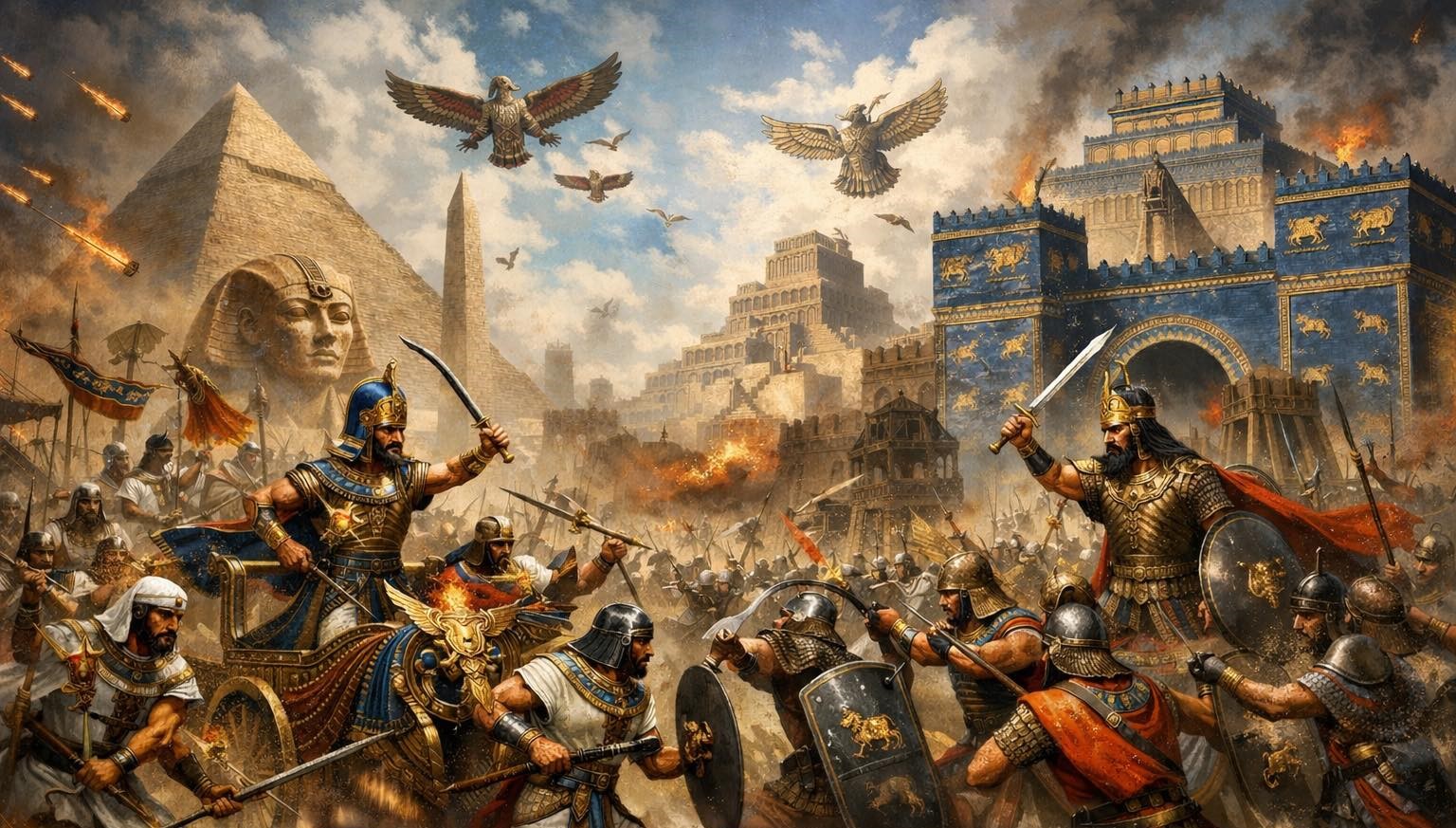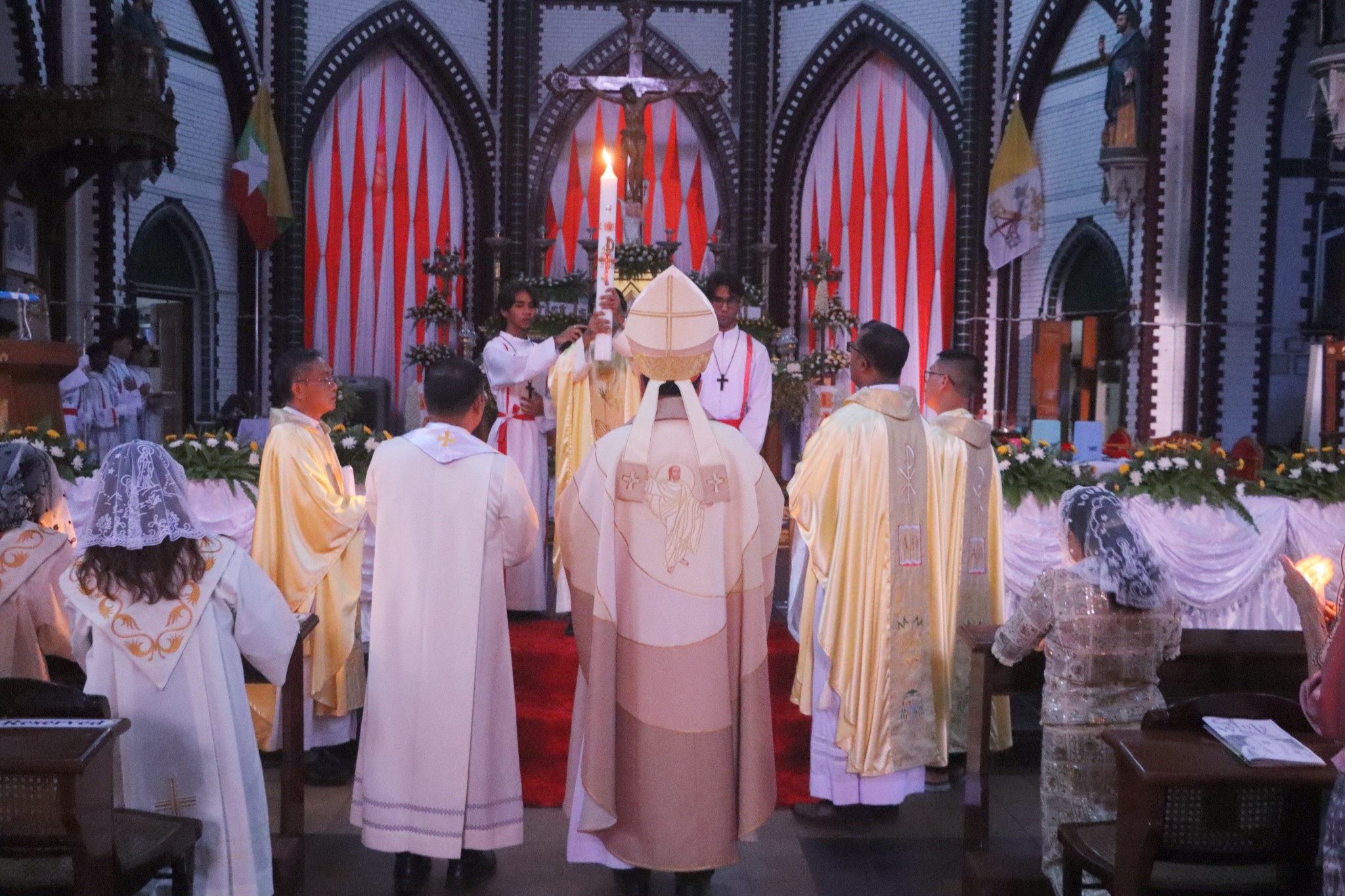– Aurelio Porfiri
We were able in the previous issue to identify Luigi Antinori from Nocera with the Luigi Antinori that was active in Macau. Do we have conclusive evidence for this? Not really, but the documents that we were able to gather allow us to identify this musician, active in Rome, as the one who traveled to distant Macau and became the Music Director in Saint Joseph Seminary.
Let us look again at the activities in the Papal States of this Italian forgotten master. In 1854 we find his name in a collective composition in honor of the definition of the Immaculate Conception dogma. The composition was called Alla Vergine Immacolata (“To the Immaculate Virgin”) and featured other composers as Alessandro Aldega, Giovanni Battista Pascucci, Venceslao Persichini. We don’t know much about this composition but the score should still be available in some Italian archives. It is interesting to note that this year, 1854, seems to be very important in the life of our composer because not only did he participate in the prestigious project in honor of the definition of a new dogma but also he apply for the diploma as composer with the Saint Cecilia Congregation (since the 16th century it was in charge of regulating life of Church musicians in Rome with the exception of the singers of the Sixtine Chapel Choir which was quite independent from everyone and considered a major achievement for every singer and composer in the profession who became part of it; the job of Church musicians was called “the Roman profession”). So, our Antinori applied for the title of “Composer.” Things will not go as smooth as the poor Luigi may have expected. Indeed in the first attempt the title was not granted. In the presentation still available at the Roman archive of the Saint Cecilia Academy it is said: “Luigi Antinori from Nocera, Choir master in provincial cities for 15 years already….” He was, perhaps, not very well regarded by the very distinguished panel of adjudicators who were called to judge his compositions.
The verses given for his exam were from Psalm 78, “Deus venerunt gentes in haereditatem tuam.” He was tasked to compose a motet. As I have said, in the document from the five examiners, it is said that the compositions presented by Antinori were not up to the standard and the examiners suggested to amend some parts, especially in the fugue and in the quartet (called “organico”) that were too “short and concise” in the opinion of the examiners. After the corrections by the composer, the five Maestros approved the conferral of the degree of Composer to Antinori.
Among the jury members there were quite important names in the Roman musical world. For example, there was Domenico Fontemaggi (1780-1856) who at the time of the exam of our Luigi was member of the Saint Cecilia Composers Guild for more than 35 years. He was in the board of examiners for composers from 1832. He was Master and Organist in very important Roman churches as Saint John in Lateran, Holy Apostles, and Saint Mark among many others. He was one of the many musicians at the service of the Church in his family and for many generations.
And there was Gaetano Capocci (1811-1898), one of the leading composers of the 19th century musical landscape in Rome. He was also associated with the Saint Cecilia Academy for long time. He was active in Saint Mary Major, in the Chiesa nuova (built by Saint Philip Neri) and most of all in Saint John Lateran, where he was active for a great part of his life. A musician almost forgotten now he was at the time “The Master” par excellence. He was a very prolific composer but his compositions, even if technically very well written, were strongly influenced by the style of Opera, as was the use in that time. Indeed the reform of Church music was at the center of the concern of several composers and music lovers, and even of Popes. We think of the interest of Gregory XVI for the reform of Church music that will come only many decades later and not without leaving open problems. But this is not the object of this particular essay.
In an essay called “The Governors and Life of Macau in the XIXth Century,” available in the website of the Macau Cultural Institute, Benjamin Videira Pires made a reference to our composer in Macau: “Even as late as the third quarter of the last century, there were still no public shows or performances apart from concerts which the police band gave in S. Francisco Park on holidays. Family and society life, however, was lively and varied. During their free time, people visited each other’s homes to play card games or dominoes while others learned to sing or play the piano under the instruction of Maestro Luigi Antinori.”
In his thesis for Hong Kong University concerning military bands in Macau, the Brazilian conductor Veiga Jardim referred to our composer: “It is no exaggeration to state that, despite the distance that separated Macau from Europe and from other more westernised Chinese cities such as Shanghai and Canton, the local population had relatively refined tastes. The enjoyment of music was therefore frequent in amateur circles. This resulted perhaps from the influence of musicians who lived in Macau, among them the likes of Luigi Antinori and Giuseppe Penatti, former music teachers at St Joseph’s Seminary.” The same researcher gives more information about Antinori in a footnote, relying on publications by Father Manuel Texeira, the most important historian of Macau: “”According to Teixeira (Macau e a sua Diocese, vol. 8, Macau: Tipografia da Missão do Padroado, 1972), Luigi Antinori (1816-1873) studied in Rome at the Accademia di Sta Cecilia and came to Macau, probably in 1863, at the invitation of Father Francisco Xavier Rondina. His work first attracted attention during the prize-giving ceremony held on 26 December 1864, when the best students at the seminary were given their awards: “The ceremony began with a choir singing beautifully to the accompaniment of an orchestra (musicians from the Macau Battalion), while the singers were some of the teachers at the seminary and several seminarists. The music was composed by Snr. Antinori, and conducted by him with the good taste he is known for. […]After the prize-giving, there was another chorus this time taken from the opera Nabuco [probably Giuseppe Verdi’s opera Nabucco). […] The celebration ended with a canticle written by Snr. Antinori, which was performed very well and to great effect” (Bol Ecl no. 14, August 1904, pp. 35-36). With the arrival of Antinori, and on the initiative of Father Rondina, the Seminary organised its first band (“orchestra”). Besides teaching at the Seminary, Luigi Antinori gave private music classes and was very active in musical events at official receptions, such as one given during the king of Cambodia’s visit to Macau when he “played the Semiramis Overture on the piano four-hands” together with Gastão Mesnier, Governor Ferreira do Amaral’s secretary (Boletim da Província de Macau e Timor, 27.VII.1872, pp. 137-138. Antinori died in Macau on 1 June 1873. BoEcl, January 1906, no. 31, vol. 3, p. 162). — Father Francisco Xavier Rondina was born in Fano, Italy in 1827 to a noble family. According to Kirschner, he went to college at the age of eleven and was teaching Philosophy by the time he was twenty. In Portugal he was a teacher at the College in Campolide (Lisbon), and also founded a Roman Catholic association in Lisbon that had a newspaper and a reading room. His learning and dynamism — he was a poet, philosopher, and theologian, and had a great understanding of Greek, Latin and Portuguese —, would have played an enormous role in improving the quality of teaching at St Joseph’s Seminary. He wrote a number of books, including a Compendio de philosophia theorica e pratica para estudo da mocidade portugueza na China, in two volumes, published in 1870 at the Seminary printshop. He died in Italy in 1897 (Carlos António Kirschner, Dom Bosco e a China – Contributo para a História dos Salesianos, Macau: Diocese de Macau, 1970, pp. 85-89).”
After our Luigi Antinori, who will die quite soon after his arrival in Macau, other Italian musicians (even before Father Ferdinando Maberini in the 1930s century in Macau) will be active as Masters in Saint Joseph Seminary.


 Follow
Follow


